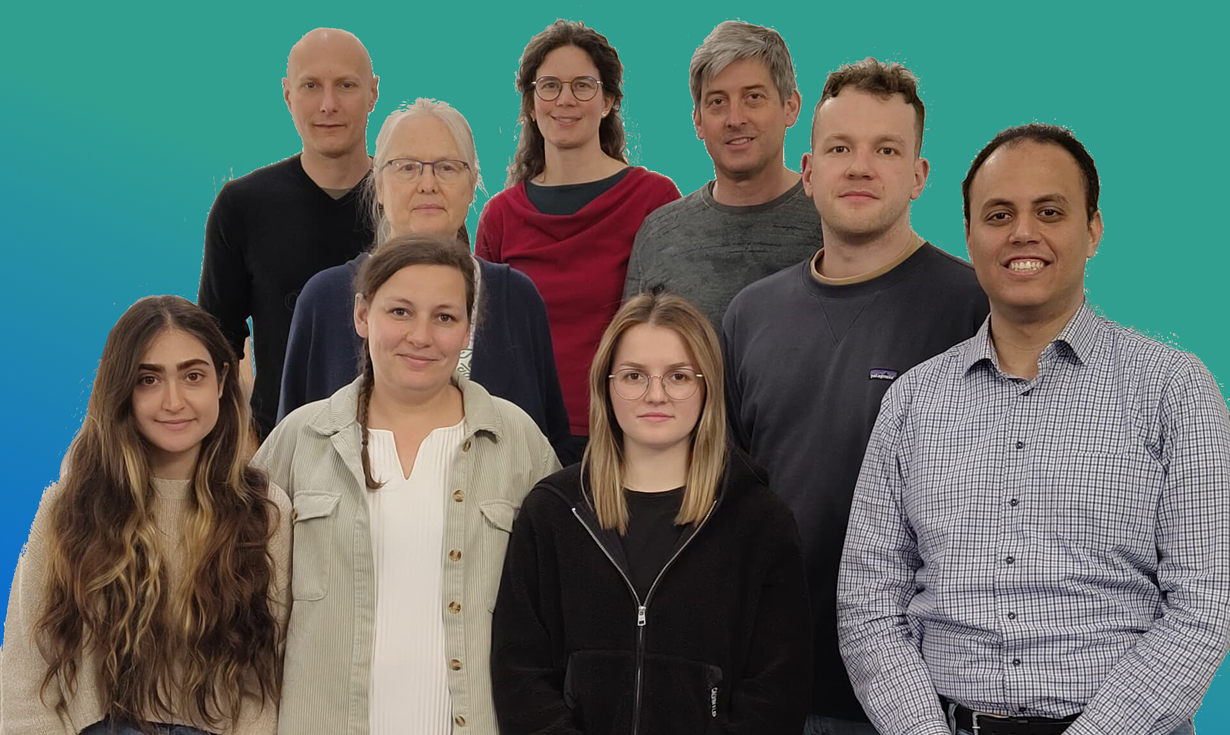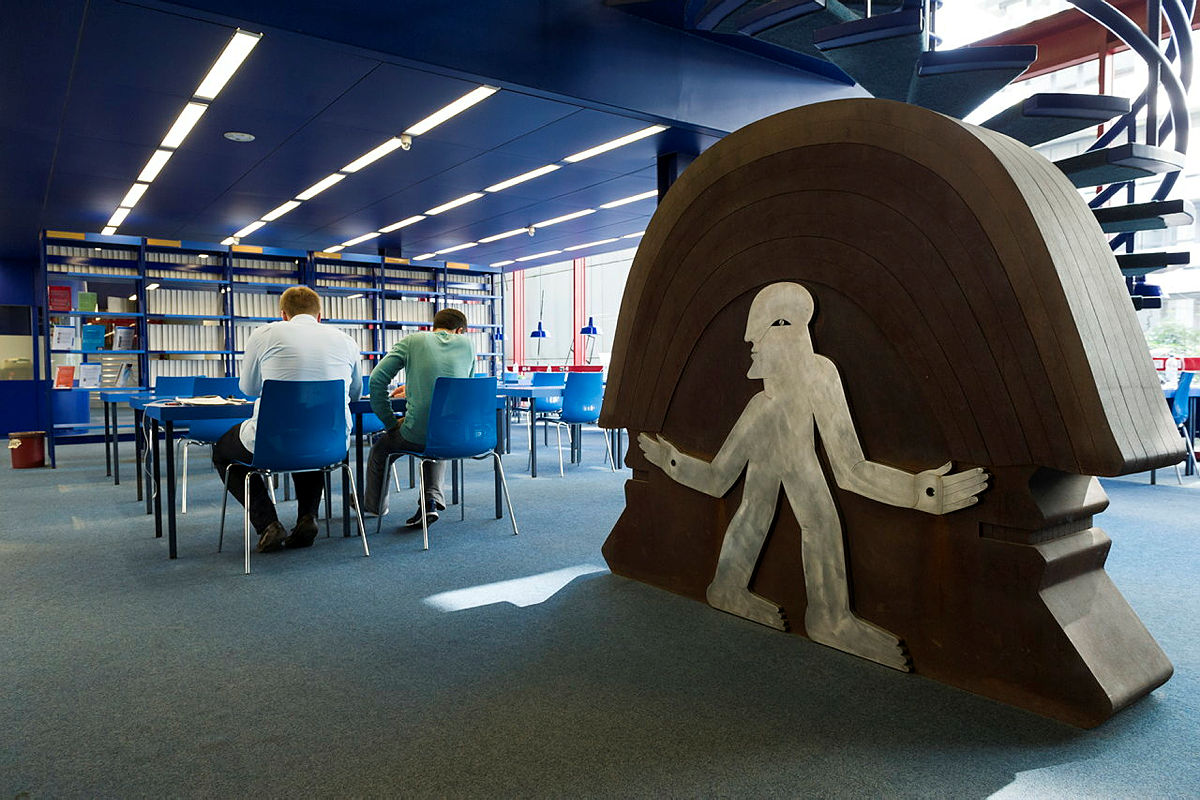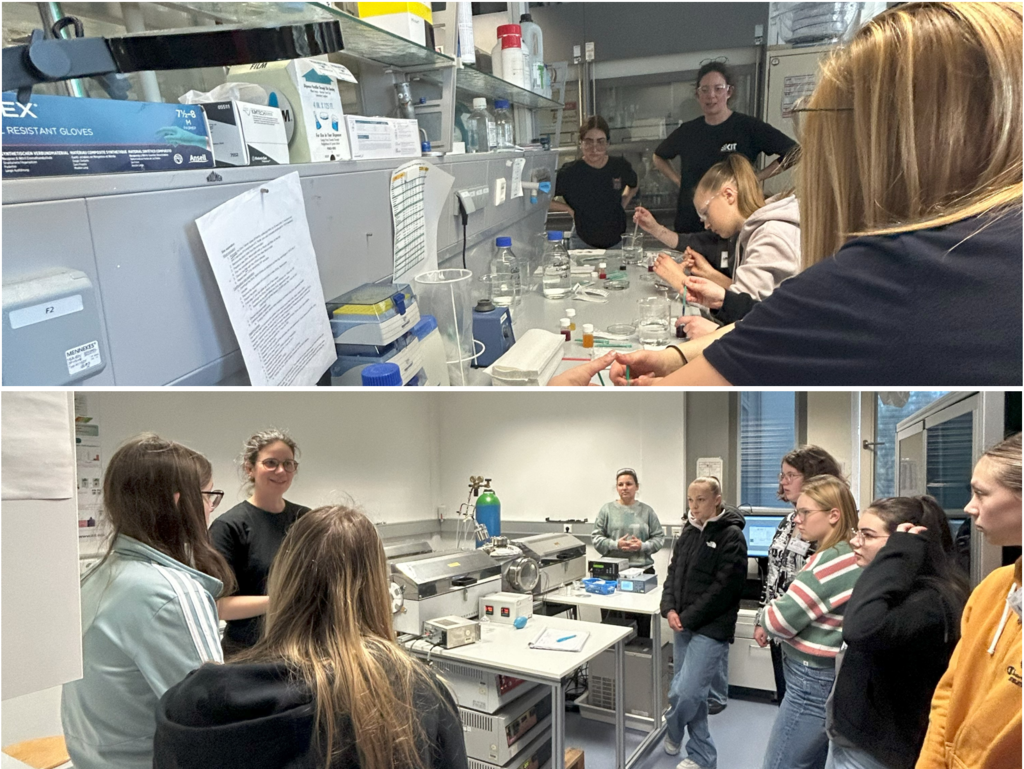
On April 5th, eight girls could inform themselves about "Macro-, Micro- and Nano-structured polymer materials" at IFG. After some action at the MakerSpace, the program continued in our labs. Dr. Meike König and Dr. Martina Plank demonstrated the Chemical Vapor Deposition setup for the fabrication of nanostructured thin films and their characterization via Scanning Electron Microscopy. Secondly, the making of polymer fibers was shown, where the girls were able to prepare multi-compartmental "alginate spaghetti" themselves. The day concluded back at the Makerspace.
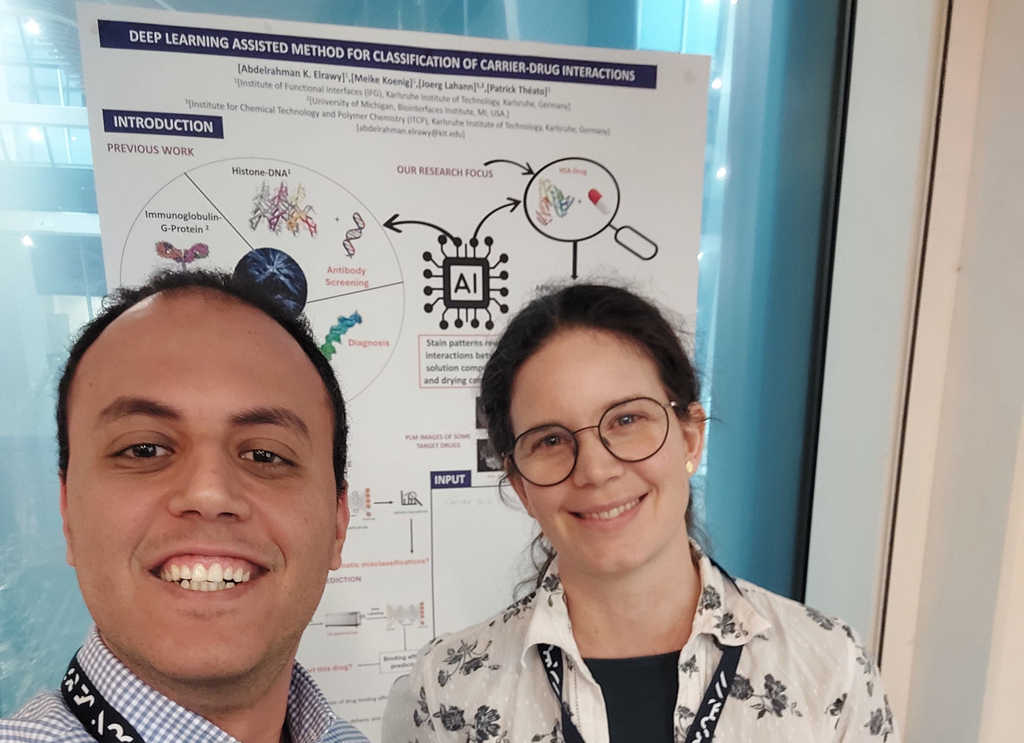
Within the frame of the EU-funded Marie Skłodowska-Curie Innovative Doctoral Network NanoRAM, we started a project on "Digitalization of Biomaterial Research via Deep Learning Approaches". Strongly collaborating with other groups across Europe and beyond, we will investigate drug-carrier interactions applying deep-learning methods.
Link_more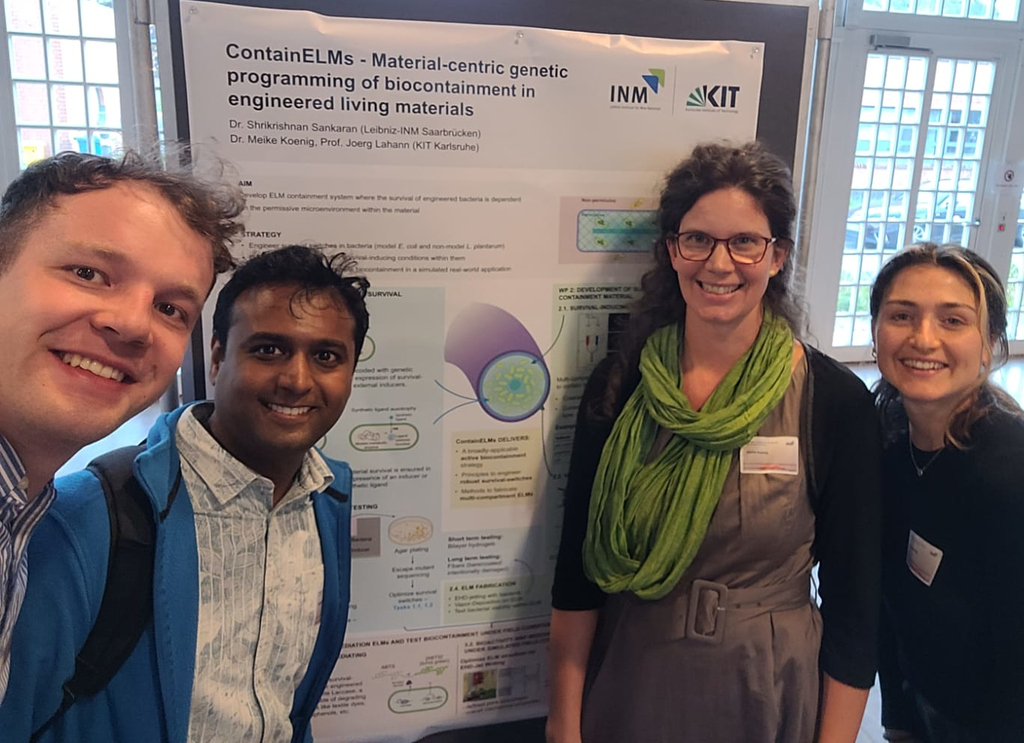
Within the frame of the SPP 2451 "Engineered Living Materials with Adaptive Functions", we started the project "ContainELMs". Together with Dr. Shriskrishnan Sankaran and Victoria Pinto from the INM – Leibniz Institute for New Materials in Saarbrücken, Robin Wilhelm and Dr. Meike König will work towards a safe usage of engineered organisms. For this we will develop materials with controlled internal properties using Electrohydrodynamic Co-Jetting and Chemical Vapor Deposition.
SPP 2451: Project ContainELMsDr. Muhammad Haseeb Iqbal won the 2022 C'Nano PhD Thesis Prize for Interdisciplinary Research in Nanoscience for his thesis entitled "Surface Engineering of Biobased Polymeric Nanofilms for Biomedical Applications" carried out at the Institute Charles Sadron & Lab. Biomaterials and Bioengineering - University of Strasbourg.
Congratulations, Haseeb!
c'nano2023Advanced Polymers and Biomaterials
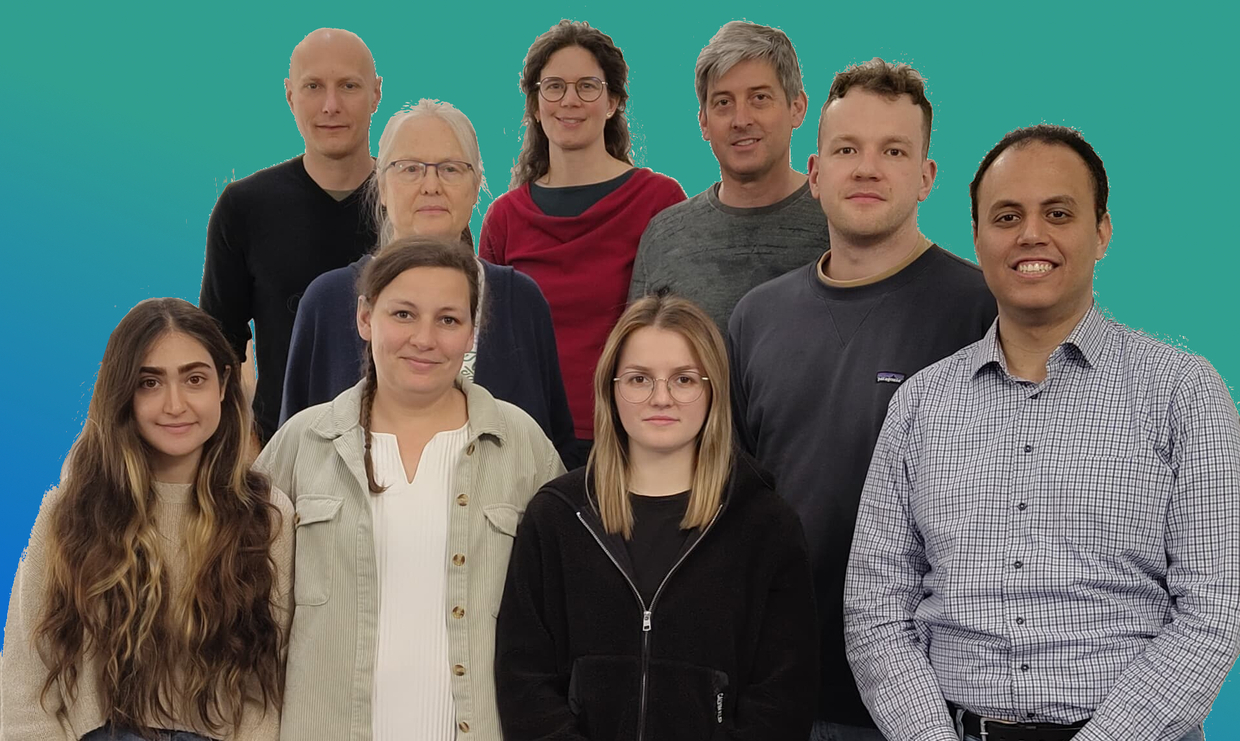
Biological interfaces with controlled properties
Biological systems are sensitive to surface properties such as chemical, geometry and topological properties.
To achieve control over interactions at the interface of biological systems and their environment, the development of materials in which individual properties can be manipulated at the micro-and nanometer scale is of great importance.
The department of Advanced Polymers and Biomaterials focuses on the targeted synthesis of such materials through manipulation of chemical and physical methods and the study of these materials in biological systems.
Research groups
| Scope of Duties/ Expertise | |
| Material synthesis |
Synthesis of organic substances (such as functionalized [2.2]Paracyclophanes and pyridinophanes, organic linkers and keteneacetale) and functionalized monomers (e.g. zwitterionic monomers and lactones) Synthesis of polymers (i.e. Controlled radical polymerization) |
| Functionalized coatings Dr. Meike König |
Chemical Vapor Deposition (CVD) Polymerization Surface modification by means of controlled polymerization and click chemistry Generation of micro- and nanostructured substrates Electrohydrodynamic co-jetting of particles and fibers |
Coverarticles
 |
 |
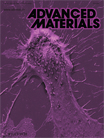 |
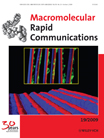 |
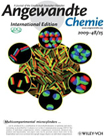 |
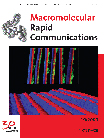 |
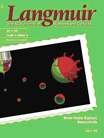 |
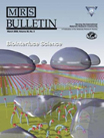 |
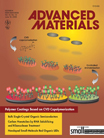 |
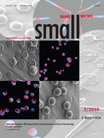 |
